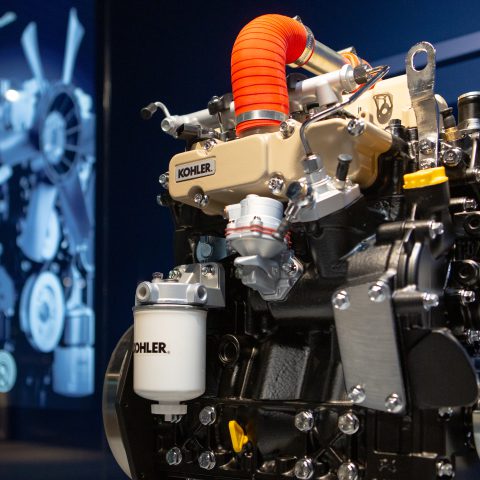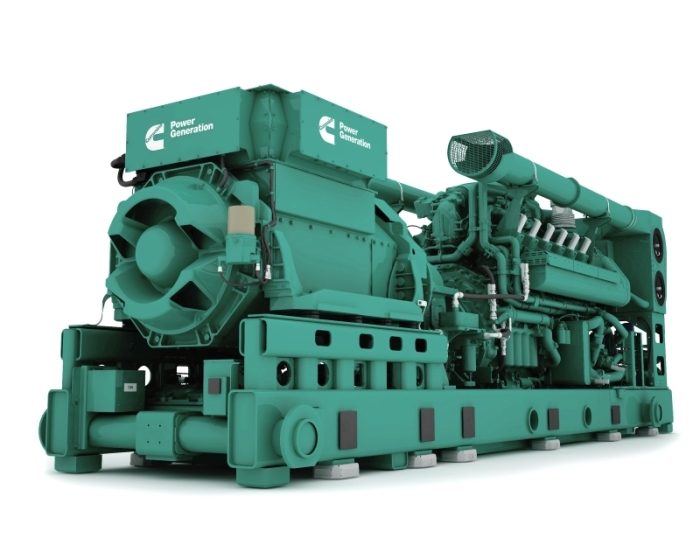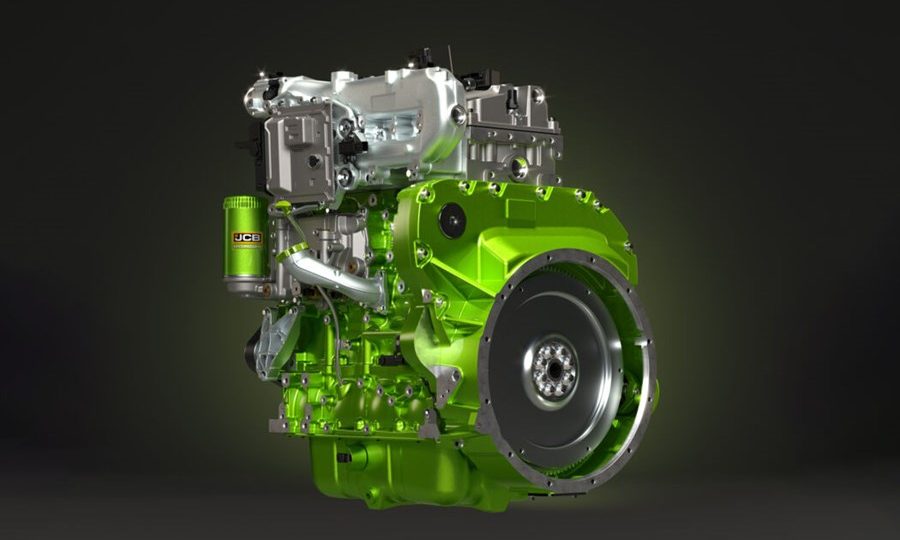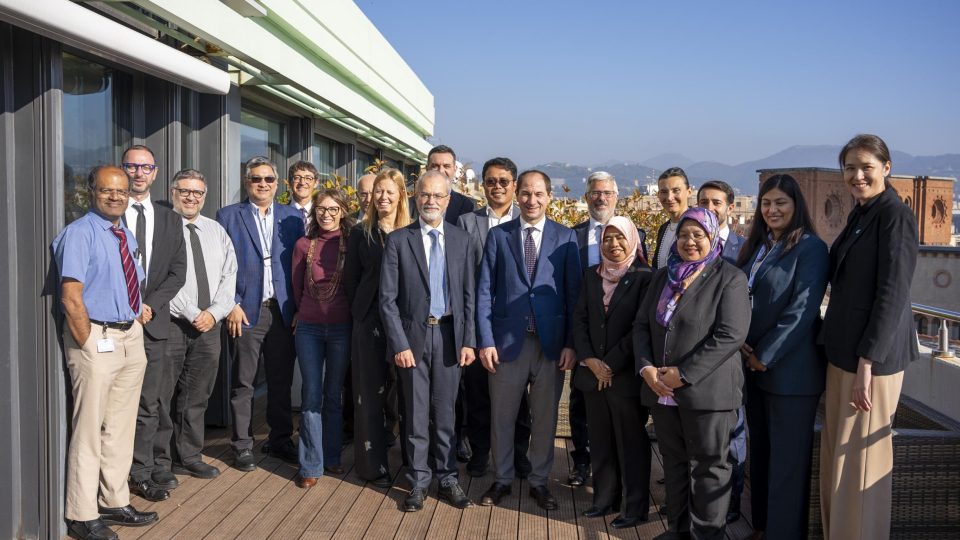EIMA: Kohler presents the new road map toward a more sustainable future
Kohler Engines announces its new strategy toward a more sustainable future, revealing its long-term plan and next steps to transform the group from a power producer to an energy supplier.

Kohler Engines announces its new strategy toward a more sustainable future, revealing its long-term plan and next steps to transform the group from a power producer to an energy supplier. The unveiling of this new strategy comes at a momentous time for the engine industry, a time of transition in which radical changes in the technologies we will have at our disposal in the future are emerging.
With the push toward progressive decarbonization and the goal of reducing greenhouse gas emissions, new technologies are projecting themselves ahead of us. Some of these will play an increasingly important role in the future of the off-road industry, and may even replace ICE technology in some applications.
Despite the negativity surrounding fossil fuels, it seems that in recent months internal combustion engines have started to take over thanks to dedicated efforts to find increasingly innovative solutions to improve energy efficiency and thus reduce their environmental impact.
Kohler’s ongoing commitment to decarbonization does not set aside ICE technology, but transforms it by continuing to invest in internal combustion engines that can provide clean, affordable energy to customers for years to come. Technological changes will not happen at the same time in all customer segments, and currently there is still no single solution for all needs. The choice of one solution over another will depend on the machine, as well as factors such as duty cycle, operating environment and location, and market-specific regulations and incentives.
Faced with the complexity of this scenario, Kohler responds with different solutions needed to meet the requirements of a wide range of machines. Investing in new technologies with the ultimate goal of decarbonization and achieving sustainability goals requires the development of all types of engines.
The pillars of Kohler’s strategy revealed at the EIMA
Thus the new pillars of Kohler’s strategy are born, new avenues to be pursued: alternative fuels, more economical and logistically manageable; electrification and hybridization, to reduce engine size or achieve zero emissions during operation; and hydrogen as a potential green source fuel.
On the road to clean energy, a first step forward has already been taken with the acquisition of Curtis, a leader in electric vehicle and hybrid applications. The acquisition expands and diversifies Kohler’s product portfolio, leveraging Curtis’ expertise in electrification, and solidifying Kohler’s commitment to hybrid and electrified solutions.
Kohler’s road map toward electrification has 2025 as its first-time goal, the date when it is expected to take off. The company’s vision is to develop sustainable and technically sound EV system solutions to increase the performance of internal combustion engines by placing full electric solutions alongside them, thereby making Kohler the best partner for drop-in options in key markets. Maintaining high standards then, integrated power unit solutions that enable the most cost-effective and efficient operation possible, but above all modularity: a wide choice of solutions – hybrid, mild hybrid, full electric – to meet every OEM need.
Now, Kohler is presenting the evolution of the K-HEM series, the hybrid unit for the combined electric and mechanical power solution. The range will move from the booster-hybrid version, Kohler’s first hybrid alternative solution design that solves the problem of onerous aftertreatment for intermittent cycles, to the versatile-hybrid version, which enables electric only operation. The so-called new P2 option achieves the zero-emissions mantra through full-electric operation, while keeping the diesel engine ready to step in to add mechanical power when needed or to recharge the battery.
The new hybrid option will be featured in CELA’s new application, the DT40, a “spider” aerial platform with an electric track. The DT40 is itself already geared to be an electric machine, in that if the battery is fully charged, crawling can be done in electric. Arm movements can also be done in electric, as the hydraulic pump is assembled on the electric machine and the latter can function as either a generator or a motor.
Current technology is constantly evolving, and the need to focus on alternative fuels is increasingly evident. Alternative fuels are aimed at raising awareness of low carbon, more economical and logistically manageable fuels. Kohler has made this path of renewal its own, beginning by joining the eFuel Alliance, which represents companies and other organizations that support and promote the use of alternative fuels from renewable energy on an industrial scale, with the goal of raising awareness of this type of low-carbon fuel.
Since 2022, Kohler has allowed HVO to be used on its entire range of diesel engines in both Europe and USA. Unlike conventional biofuels that take resources away from agriculture and contribute in part to deforestation, HVO is a renewable fuel that can be produced from various vegetable oils and fats: it is derived from biological waste and, free of fossil-derived oils, is a 100% recycled product. In addition, depending on the raw material used in its production, it leads to a reduction in overall CO2 emissions of up to 90%. Engine exhaust emissions also benefit directly, given the very low sulfur content.
Alongside HVO, Kohler has also decided to include hydrogen as an alternative fuel: an incredibly versatile energy source whose technology is rapidly evolving. Kohler is developing a diesel-derived hydrogen internal combustion engine based on the KDI 2504 for commercial off-road applications: a carbon-neutral solution, and near-zero overall emissions. The project has the ultimate goal of providing the same power and torque as the original diesel engine. The hydrogen internal combustion engine will be a cost-effective drop-in solution, and potentially adaptable to most applications.
All the systems currently under development, from HVO to biofuels to hydrogen, will be able to be applied to hybrid solutions, blending the strengths of each individual energy source to best effect.
The KSD
Another cornerstone of Kohler’s strategy is the KSD, the engine that has been a symbol of this year, winning both the Diesel of the Year award from Diesel and the Engine of the Year under 175 hp award at the Diesel Progress Summit. The KSD is a state-of-the-art engine in the under 19 kW category that features a revolutionary electronically controlled indirect injection combustion system, as opposed to the standard mechanical indirect injection in this category. This offers advantages such as high low-end torque – 95 Nm at 1000 rpm for TC/TCA – and better performance at altitude. The KSD boasts a low total cost of ownership thanks to its optimized fuel consumption, extended service intervals, and simplified routine maintenance doable with only two tools.









